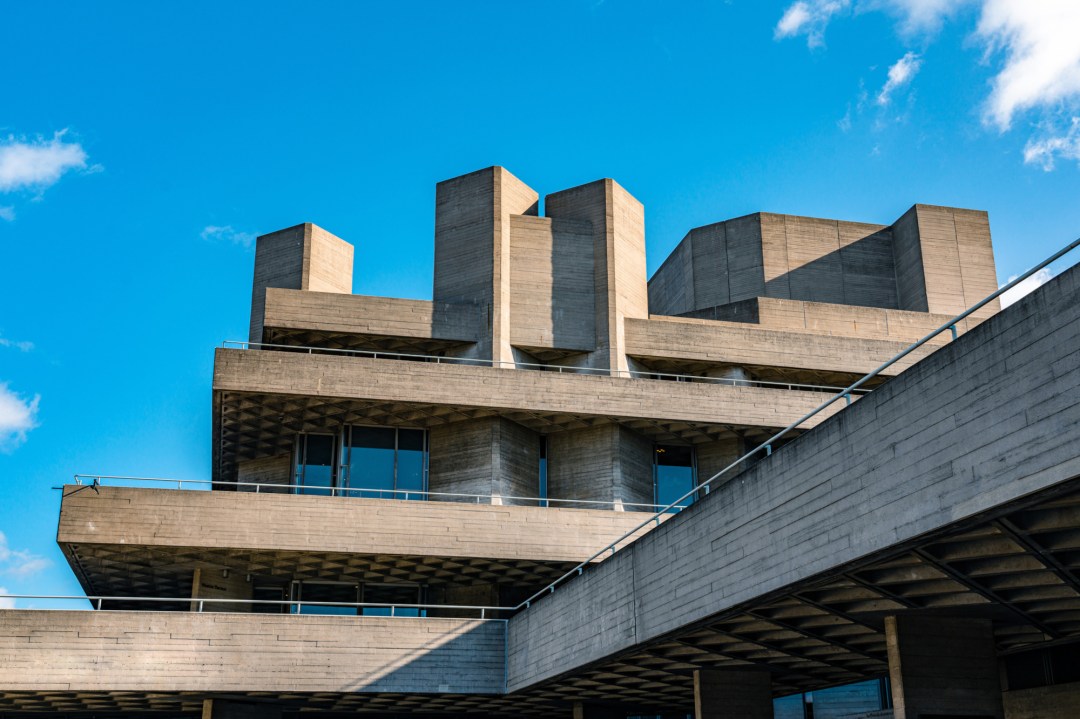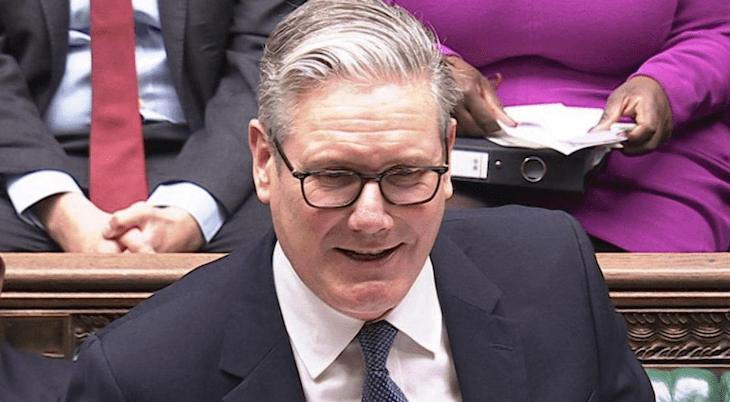The new boss of the National Theatre has a big job on her hands. The combination of Covid, funding cuts and rising costs has left it struggling financially. Audiences remain stubbornly below pre-pandemic levels, with plenty of theatregoers complaining about high ticket prices for mediocre productions. Bubbling away is the eternal question of the National’s role as the country’s pre-eminent stage venue in helping to tell the nation a story about its cultural and political life at a time of growing fragmentation.
There will be rap adaptations (why?) of Greek tragedy. There will also be a show involving Stormzy, the chart-topping rapper
What then can be gleaned about this and more from the first season plans of the theatre’s new artistic director? Indhu Rubasingham is the venue’s first female and ethnic minority artistic director — she was born in Sheffield and is of Sri-Lankan heritage. In unveiling her first season, there was, rather depressingly, much talk about ‘international’ priorities and diverse casting to appeal to global viewers. This includes expanding the international audience for National Theatre at Home, a monthly streaming service for stage productions. Casting decisions will be made partly with a view to choosing actors who represent potential audiences in international markets, including India and Nigeria. Is it churlish to point out that the theatre is Britain’s national stage venue, based in London?
There will be rap adaptations (why?) of Greek tragedy: Rubasingham will direct Euripides’ ancient tragedy, The Bacchae. There will also be a show involving Stormzy, the chart-topping rapper. Rubasingham has spoken about how she spent more than six months ‘doggedly pursuing’ the grime artist, describing him as ‘a generational voice’. His scheduled appearance in a show remains a closely guarded secret.
Rubasingham said she would look at ‘who is the big Nollywood [Nigerian film industry] star, who’s the big Bollywood star that we could bring and work’, that could ‘open the door to new audiences, because they are seeing someone they really want to see.’ Yes, but what about the poor sods paying sizeable sums to turn up at the theatre itself? Do their views count for anything? What if they’re not fussed about the latest Bollywood star, who might be a big name in the film world but can’t actually act on stage? The mind boggles.
It is apparently all about a focus on something called ‘international reach’ — presumably a phrase dreamed up by some expensive consultancy or other. The National will also look to work with writers and others who can help to tell ‘stories that cross continents’. Don’t all good stories do that anyway? Isn’t it the quality of the writing that makes the play appeal to people everywhere in whatever continent, rather than the other way round?
Rubasingham goes on to say that she wants to ‘bring the world to our stages, and take our stages to the world.’ Why do ‘creatives’ talk this way? What does this even mean? She also said that she was interested in ‘state-of-the world plays, as opposed to state-of-the-nation plays.’ First of all, why would these be mutually exclusive categories? And isn’t it a touch strange that someone who is charged with running Britain’s National Theatre (the clue is in the title) appears to be so indifferent, contemptuous even, of national issues and instead prefers to focus on the world elsewhere first and foremost.
In fairness, Rubasingham has managed to recruit a stellar group of actors for her first season. Paul Mescal is set to star in Arthur Miller’s Death of a Salesman. Aidan Turner, of Poldark fame, has been recruited to star in Les Liaisons Dangereuses. It is also fair to point out that Rubasingham arrives at the National garlanded with praise for her ability to put on plays that balance critical acclaim with popular appeal — no easy feat. Her appointment in 2023 — succeeding Rufus Norris after his ten-year stint leading the theatre — was met with widespread acclaim. Plenty of her supporters in the theatre world will be quick to suggest that her plans for her first season are brave, original and just what the National needs. Even so, it is the ticket-buying theatre goers who will have the final word. The great Laurence Olivier, the National’s founding director, pointed out that the theatre’s purpose is simple: ‘To make the audience applaud.’ There’s little in the way of clapping to be heard right now.









Comments